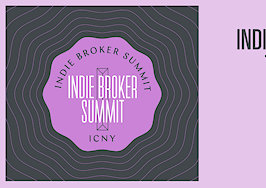If you’re a solo agent or a small real estate company, it can be hard to get another person to help with marketing.
The consensus at two Inman Connect New York 2020 panels at the Marriott Marquis hotel, “Marketing Insights From The World Beyond Real Estate” and “Marketing in a Second-Home or Vacation Market,” was that most will try to do it alone for as long as they possibly can.

Grace Ouma-Cabezas
In reality, a team is almost always behind any effective marketing campaign. That email newsletter sent to vacation home owners? Written by content creators who know which terms will reach buyers. Your colleague’s seemingly impromptu Facebook Stories of open houses? Shot by someone who knows how to use a camera.
Bonneau Ansley, the founder & CEO of Ansley Atlanta Real Estate, has recently expanded his business to cover vacation and second home properties. Because his primary client base is in Atlanta, he has a full-time staff member market to those looking for vacation homes in nearby resort areas.
“Everybody is a team member in the second home market,” Ansley told the audience. “I make sure that the valets and the caddies at the golf club know how to find me [to have brochures ready for visitors.]”

Bonneau Ansley
Grace Ouma-Cabezas, VP of Digital Marketing, Food52, manages a large marketing team. Different people analyze trends, develop content tailored to specific consumers and then distribute that content through email and social media.
“The community aspect has always been really critical,” Ouma-Cabezas said. “Have content be a conduit for relationships.”
And while a full-scale marketing team may not be feasible for a small company, everyone can invest some money into strengthening your social media presence. This could mean anything from having strong photography to put on your page to buying email lists and boosting posts that are likely to get leads.
Amie Quirarte, a solo real estate agent working in the Tahoe area of California, invests heavily in her social media channels — it is one of the main ways she finds clients who are interested in the area but live far away.

Amie Quirarte
“You have to build a relationship with a buyer or seller that you don’t always meet,” she said. “You need to build trust without that face-to-face connection [when selling second homes.]”
Building trust can take many forms — from becoming a community’s go-to expert on social media to knowing which newsletters will be relevant rather than annoying. But in the end, reaching the type of client that will bring you leads requires work. Instead of trying to do it all alone, invest in those with expertise in the subject.
“Give those people the responsibility to go do it,” Ansley said. “I could micromanage but I have to let them do it.”








